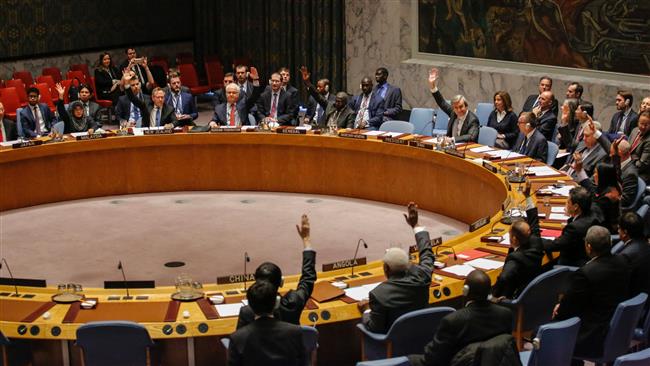
RNA - On Saturday, the UNSC approved the resolution which also aims to pave the way for new talks in the Kazakh capital city of Astana next month, ahead of the resumption of UN-brokered talks in the Swiss city of Geneva in February.
The text of the resolution "welcomes and supports the efforts by Russia and Turkey to end violence in Syria and jumpstart a political process."
The resolution also calls for rapid access for humanitarian aid to be delivered across Syria.
The adoption of the Syria ceasefire deal comes as Moscow has said it wants the UN’s involvement in the peace negotiations between representatives from the Syrian government and foreign-sponsored opposition in Astana.
Both Turkey and Russia have stressed that the forthcoming talks do not aim to replace UN-backed peace efforts, but rather supplement them.
The talks will be mediated by Russia, Turkey, and the Islamic Republic of Iran. The three countries successfully implemented a similar accord earlier this month following the defeat of militants in the northwestern Syrian city of Aleppo.
The United States is obviously absent from the new process, but Moscow hopes the incoming administration of President-elect Donald Trump would play a role.
The nationwide ceasefire in Syria, which came into effect on Thursday midnight, has been largely holding, with most of the country witnessing a relative calm.
There were, however, sporadic clashes between Syrian government forces and their allies on one side and Takfiri militants on the other in the mountainous Wadi Barada region near the capital, Damascus, as well as the southern city of Dara’a.
The so-called Syrian Observatory for Human Rights, based in Britain, also said in Saturday that most of Syria remained calm, despite limited clashes.
Jabhat Fateh al-Sham, formerly known as the al-Nusra Front, and Daesh terrorist groups are excluded from the ongoing truce in the country.
On Thursday, Syrian Foreign Minister Walid al-Muallem hailed the ceasefire deal as a “real opportunity” for a political settlement of the deadly crisis in Syria, which has been plaguing the Arab country since early 2011.
“It is the duty of the factions (militant groups) who have signed it to distance themselves from, and declare that they are not linked to the Nusra Front or Daesh,” Muallem said in an interview broadcast live on state TV.
847/940